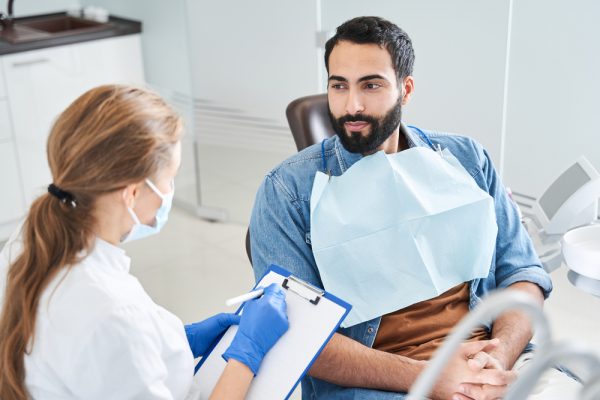Effective Oral Surgery Procedures With Our Dentist in Pineville
At Locke Family Dentistry, we understand that oral surgery is intimidating to some patients. However, these procedures are often necessary for preserving or restoring oral health in a way that non-surgical procedures can’t achieve.
Our family dentist in Pineville, LA, has years of experience and education to ensure the best outcome for your treatment. We proudly serve Alexandria, Natchitoches, and the Rapides Parish area with high-quality care in a welcoming environment. Learn more about common oral surgeries with our guide below.
What is Oral Surgery?
Oral surgery refers to any operation performed on your teeth, gums, or jaw. Whether to remove an infected tooth or prep your mouth for future dental procedures, oral surgeries help get your oral health on track. Our caring dentist will take the utmost care when performing your procedure.

Our Oral Surgery Services:
Tooth Extractions
While we work hard to preserve your natural teeth, tooth extraction may be best for oral health. Dr. Locke may recommend tooth extraction surgery to remove teeth causing pain or to treat other oral health problems. Dr. Locke understands that this procedure can be intimidating to many patients, so we offer dental sedation to help you relax during your oral surgery. Our dentist may recommend tooth extractions for teeth that are
- Overcrowded
- Damaged
- Decayed
- Infected
- Impacted
Dental Implant Placement
If you’re missing teeth, you know how much it can affect your daily life. Dr. Locke offers durable dental implants, the most advanced and long-lasting method of replacing teeth. This revolutionary oral surgery can restore your smile with a dental restoration that looks and functions like natural teeth.
We’ll create your dental implants using biocompatible titanium. This high-quality material is ideal for replacing natural teeth, as it acts as your tooth roots by fusing with your jawbone. Your fixture integrates into your bone as you heal, keeping your dazzling smile firmly in place.
Bone Grafting
Dental implant posts require enough bone structure to bond with your jawbone. We offer bone grafting as a supplemental procedure if you’ve lost bone structure but still want to receive dental implants.
The bone grafting process uses bone cells from another part of your body to stimulate bone growth in your jaw. Dr. Locke will bind your healthy cells to the weakened area of your jawbone, promoting new cell growth. Bone grafting allows you to rebuild a strong bone structure to support dental implant restorations.
If the bone isn’t dense enough, Dr. Locke might recommend a bone graft. Learn more by scheduling your consultation at our Pineville office.
Frequently Asked Questions:
Is oral surgery dangerous?
Oral surgery is not dangerous. These procedures are safe and effective ways to alleviate painful symptoms and get your oral health back on track. If you have questions or concerns about your upcoming treatment, don’t hesitate to ask your dentist or oral surgeon.
How long does it take to recover from oral surgery?
While every patient heals differently, it’s recommended to get at least 48 hours’ worth of rest after an oral surgery procedure. During this time, refrain from vigorous physical activity, as it may affect your recovery and set you back on your treatment. Your dentist will provide additional care tips at your initial consultation that you should follow for the best outcome.
What can I eat and drink after oral surgery?
After oral surgery, avoid foods that may irritate the surgical site, such as crunchy, spicy, or chewy foods. Your dentist will likely recommend a soft and liquid diet for at least 24 hours after your procedure. Some safe foods to eat include:
- Soups and broths
- Scrambled eggs
- Yogurts and pudding
- Protein shakes
- Pureed fruits and vegetables
Will dental insurance cover my oral surgery?
Most oral surgery procedures are covered in full or in part by dental insurance. Contact your insurance provider to learn what benefits you’re entitled to with your plan. If you need help covering out-of-pocket expenses, ask your dentist if their office offers financing options.
